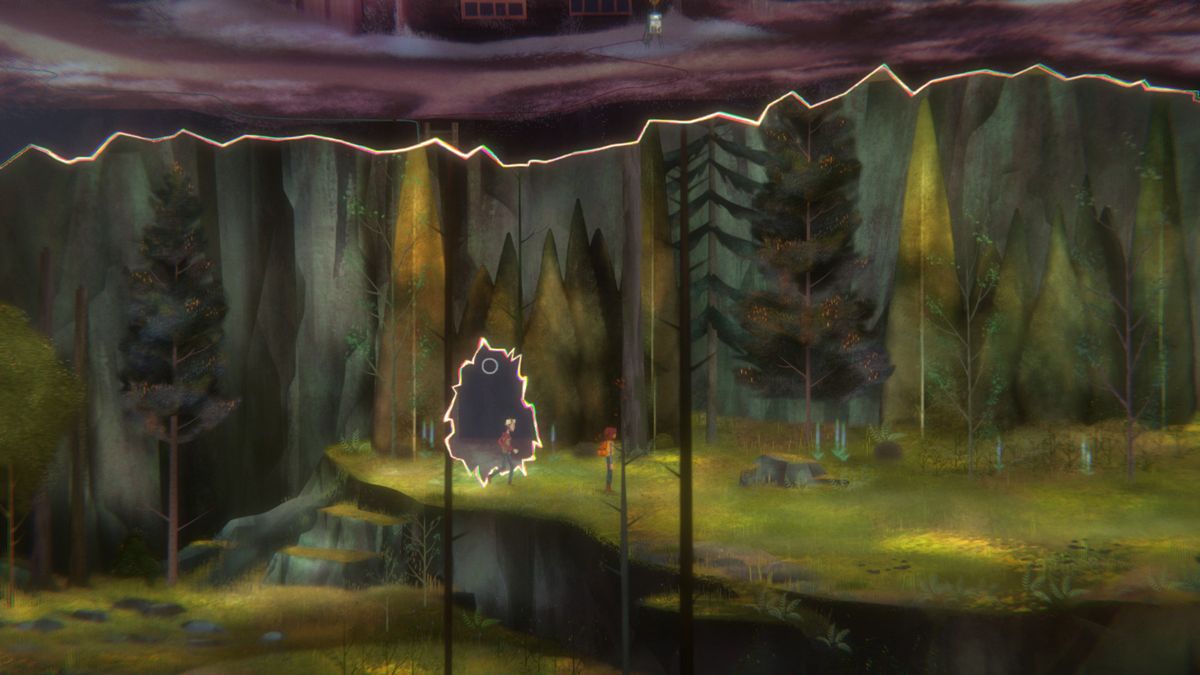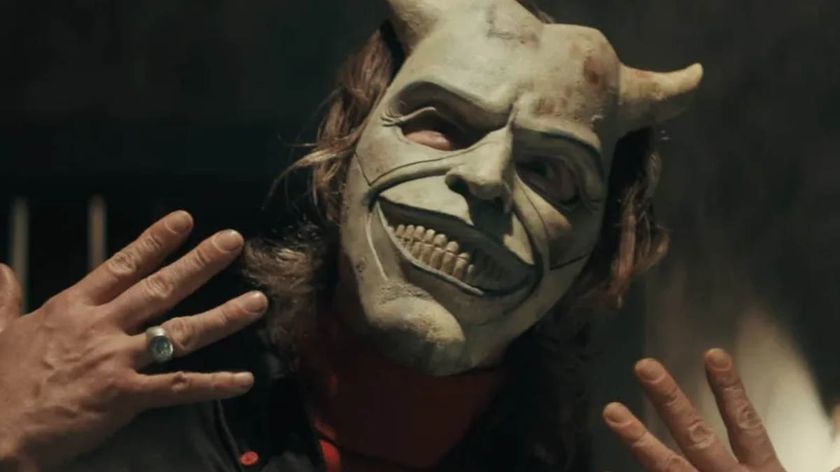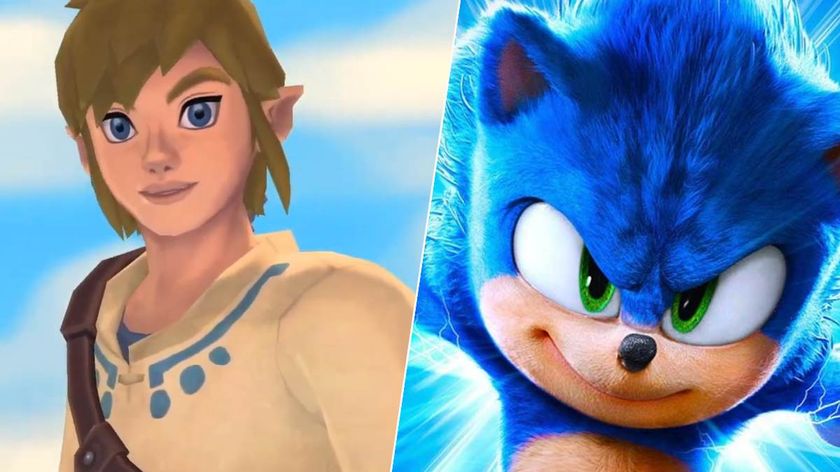12DOVE Verdict
Oxenfree 2 is a disappointing sequel that takes the flawed gem of a first game and rubs out almost everything that made it shine. A reasonable plot and neat audiovisual effects find themselves submerged under ponderous navigation, flat characters, and overly regimented dialogue.
Pros
- +
A strong audiovisual identity
- +
Some interesting plot turns and links to the original
Cons
- -
Less naturalistic dialogue systems than in the first game
- -
Slow navigation and too much backtracking
- -
Main characters are really dull
- -
The paranormal elements are too familiar
Why you can trust 12DOVE
The original Oxenfree was a little rough and experimental, but an abundance of energy always carried it along. In part, that was down to the draw of its spooky island mystery, yet even more it was thanks to the zingy chatter of its teenage cast, rambling, bickering and speaking over each other, with just enough room for your dialogue choices to weave into the flow. When it worked, conversations felt organic. When it didn't, it felt lively regardless, and suggested a potential for improvement in future adventures.
Developer: Night School Studio
Publisher: Netflix Games
Platform(s): PC, PS5, PS4, Switch
Release date: July 12, 2023
Oxenfree 2: Lost Signals thus always sounded like an exciting prospect – surely the time to really deliver on that potential. And with that in mind, I can only conclude that the final result is a real disappointment. Sure, much of the erraticism in Oxenfree's dialogue system has been ironed out in this sequel. But in the process, so has nearly everything that made it pleasing in the first place, not least that vibrant energy.
Polite Conversation
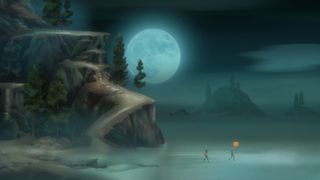
Early sensations on arriving in the tiny town of Camena – an athlete's swim from the first game's Edward's Island – are likely to be those of familiarity. The camera takes up the same aloof side-on position. The scenery still oscillates magically between looking like a cardboard cutout and almost a real place. Coloured speech bubbles appear beside the head of whoever's talking. Little circles denote points of interest. Dialogue choices remain neatly mapped to a trio of keys or face buttons.
One immediate difference, though, is that the character you're controlling this time, Riley, isn't part of a group, and the first conversation she has, with a woman named Evelyn, is a remote one via walkie-talkie. Riley has taken a job planting radio transmitters around the rocky forest that surrounds Camena, so the group that hired her can listen in on some unusual radio signals, and Evelyn will guide her through the process from back at base.
The script and voiceovers here certainly maintain the informal chattiness of the first game, but in moving chunks of its dialogue to the walkie-talkie, Oxenfree 2 already begins to chip away at its own killer feature – the bouncy to-and-fro of up-close banter. By design, the walkie is limited to two-way communication, where each party takes clear turns full-stopped by the word, "Over." Instead of natural, chaotic discussion, it produces binary dialogue that feels much more typically game-like.
Worse, the strict rules of walkie talks seem to bleed into in-person interactions. For much of the game, Riley is accompanied by Jacob, another hire assigned to partner her, but there's little room for electricity in their alternating exchanges. More often than before, if you make a quick dialogue choice, instead of interjecting your response is left queueing until Jacob finishes speaking. Meanwhile, points of interactivity in the scenery deactivate during a conversation, so you have to wait for it to play out. True, that means pieces of speech are less likely to overlap and cause confusion now (although it still happens occasionally), but it's a sterile solution that dampens your sense of moment-to-moment involvement.
Radio Ga Ga
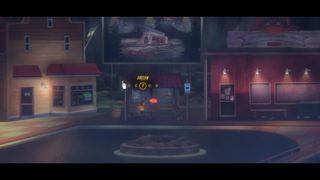
It's a relief when the plot at least gets a shot in the arm not far in, then, as Oxenfree 2 reintroduces the paranormal elements from its predecessor. It's no surprise given that the first game's ghostly entities emerged through radio signals that the job you've been given is likely to stir up trouble again. But it's really not your fault this time, as the first transmitter you plant clashes with the plans of a new group of teenagers, who for some reason actually want to open up an interdimensional portal with reality destroying side effects.
To stop them, you still have to plant the rest of the transmitters at key points around Camena, but now your mission intersects with various head-spinning time loops, rifts, and warps. Once again, these are framed by delightfully creepy audiovisual effects, from bands of static at the fringes of the screen to voices from beyond comprising fragments of radio broadcasts. And again, tuning your portable radio to a certain frequency can help restore normality, but now there's more besides. Rifts that let you hop back in time briefly may get you around environmental obstacles, for instance, while new mini-games involve turning multiple dials to match sound waves.
It's a shame, then, that these additions turn out to be very limited – bowing out after a scant few appearances before anyone might accuse them of becoming puzzles. Because, other than those, many of the ghostly tricks on display here are all too familiar from the first time round – mostly a series of illusions that make things and people go weird for a bit, then dump you back where you were. For a game that strives to create an atmosphere of strangeness, what's especially strange is that it doesn't offer a fresh brand of supernatural phenomena to muddle your noggin.
Jacob's Blabber
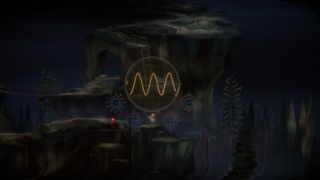
The upside of treading old ground is that the Oxenfree 2 story gets to link back to the original in some fun ways, producing some decently surprising plot turns. But even here, key events are brought low by the stodgy and sparkless pacing in between. Part of that is down to the convoluted journeys you have to make across the map. The mountainous terrain around Camena adds new verticality, and demands a little more work to scale, but that's hardly a plus when you're forced to endure some grubby backtracking, as well as Riley's refusal to run in all but the most urgent situations.
The real insult added to injury on these lengthy hikes, though, is that Riley and Jacob – but especially Jacob – are terminally dull individuals. Riley is chronically sardonic, while Jacob is a nice but drippy dingus. Both are 30-something underachievers, consumed by introspection, despite the lack of much in their lives worth introspecting. While a focus on personal angst made sense in the context of a cast consisting of teens in the first Oxenfree, here I just wished they'd get over themselves.
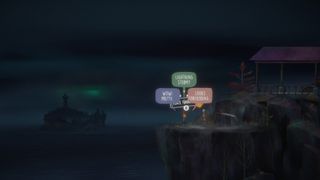
"The upside of treading old ground is that the Oxenfree 2 story gets to link back to the original in some fun ways"
It's irritating even when Riley is alone, as she cracks dreary jokes to no one, but tougher still in the long tracts of Oxenfree 2 that glue her to Jacob, in which the newly acquainted duo fill the dead air with any dry thought that enters their heads. "Sunsets on Mars are blue," Jacob announces after they've seen the sun setting, then witters on about the subject without encouragement, like someone trying too hard to salvage a failing blind date. At first I responded to such observations with feigned interest, to appear polite – although many of Riley's replies are short and snippy. Eventually, I began to ignore them entirely.
Also, if the other people you meet on your trek are more tolerable than Jacob, there's no sense of emotional connection with any of them – not of the kind I instantly established with the old Oxenfree gang. None of them, from Jacob to the disruptive teens, or Evelyn and the handful of locals you hook up with via walkie-talkie, have any personal history or family ties with Riley. They're strangers, and there's little room to get to know them, or to even decide if you really like them or not. Nor do any of the walkie-talkie acquaintances have concerns that intersect with anyone else's, and ultimately they become mere side quest providers you can choose to indulge or forget about.
By the end of Oxenfree 2, I admit I was left a little curious about different outcomes that may have occurred had I made alternative choices throughout. But then the thought of playing it again to find out is far from a happy one. From the slow trudges to the banal principal players, I don't have much energy left either.
Oxenfree 2: Lost Signals was reviewed on PC, with code provided by the publisher.
More info
| Genre | Adventure |
Jon Bailes is a freelance games critic, author and social theorist. After completing a PhD in European Studies, he first wrote about games in his book Ideology and the Virtual City, and has since gone on to write features, reviews, and analysis for Edge, Washington Post, Wired, The Guardian, and many other publications. His gaming tastes were forged by old arcade games such as R-Type and classic JRPGs like Phantasy Star. These days he’s especially interested in games that tell stories in interesting ways, from Dark Souls to Celeste, or anything that offers something a little different.
